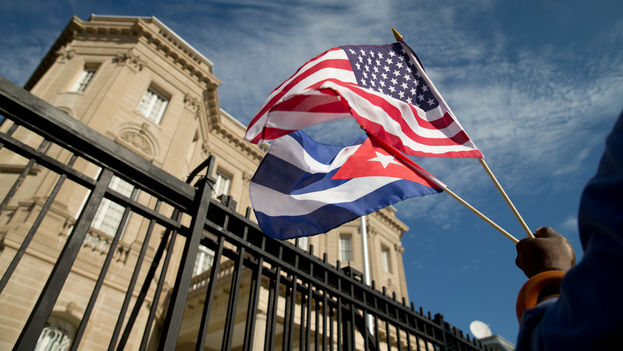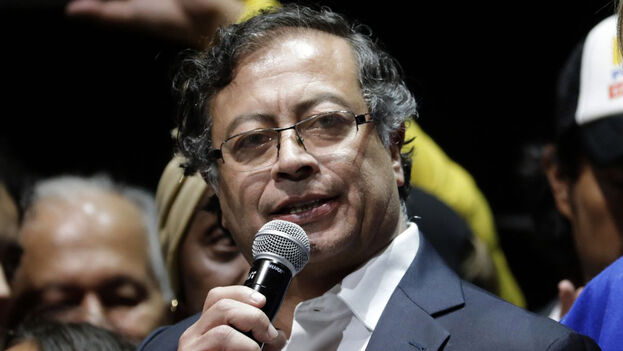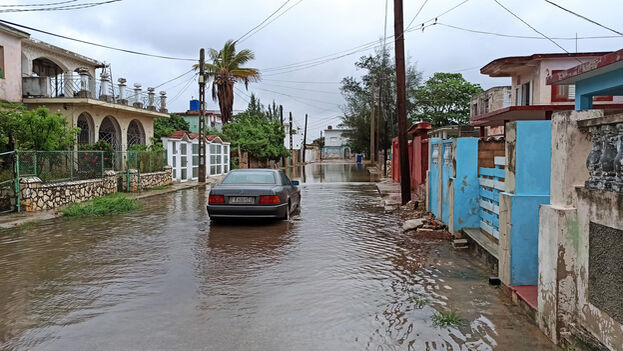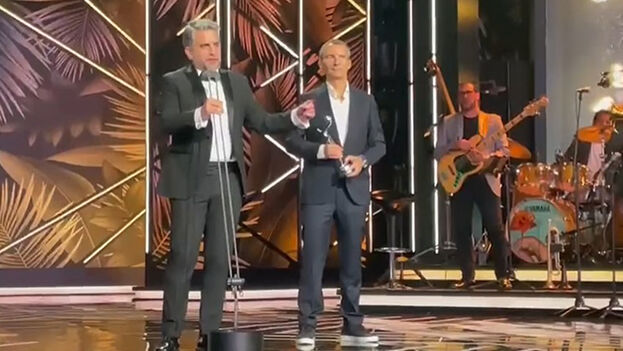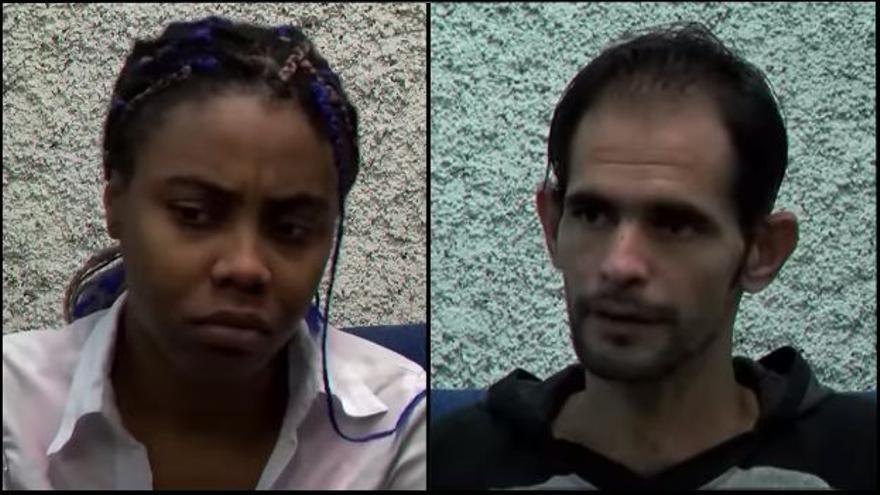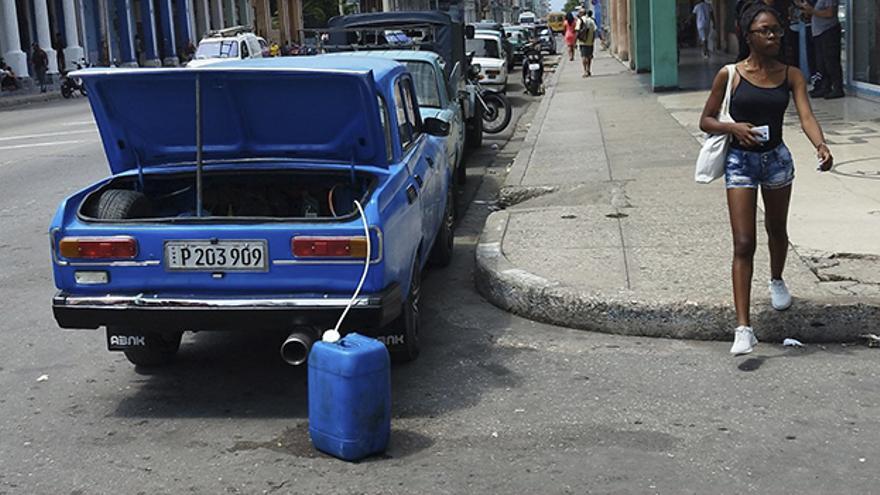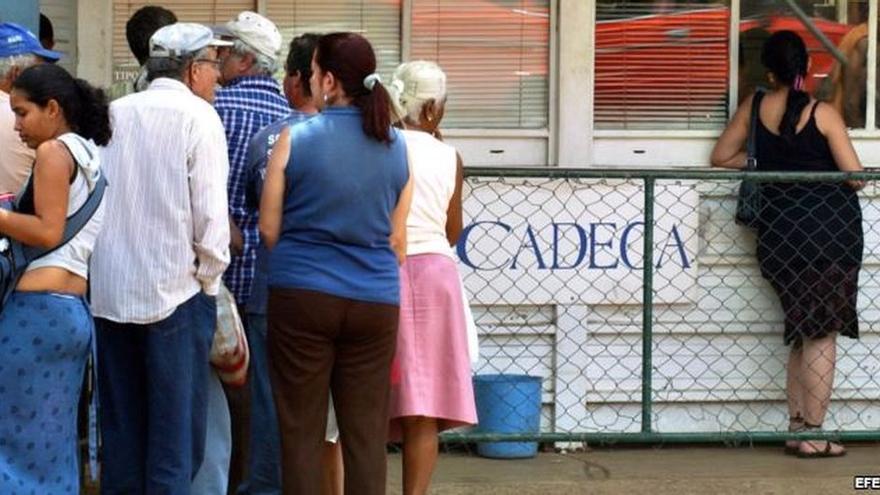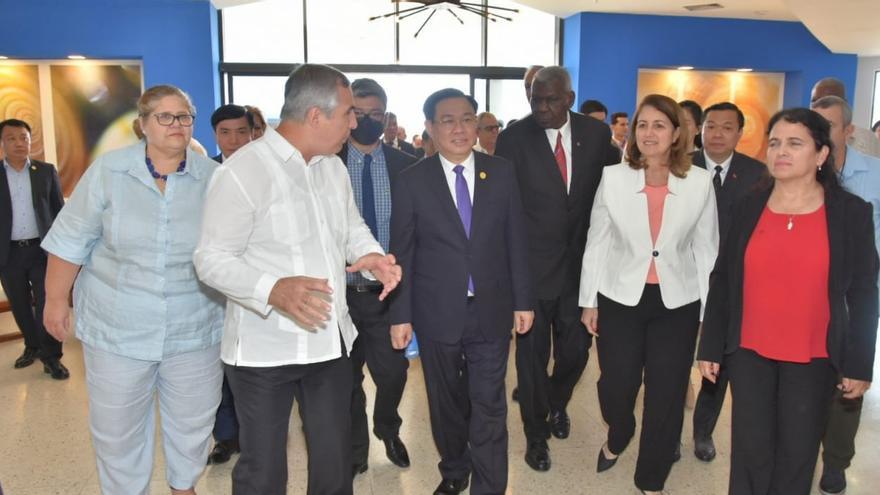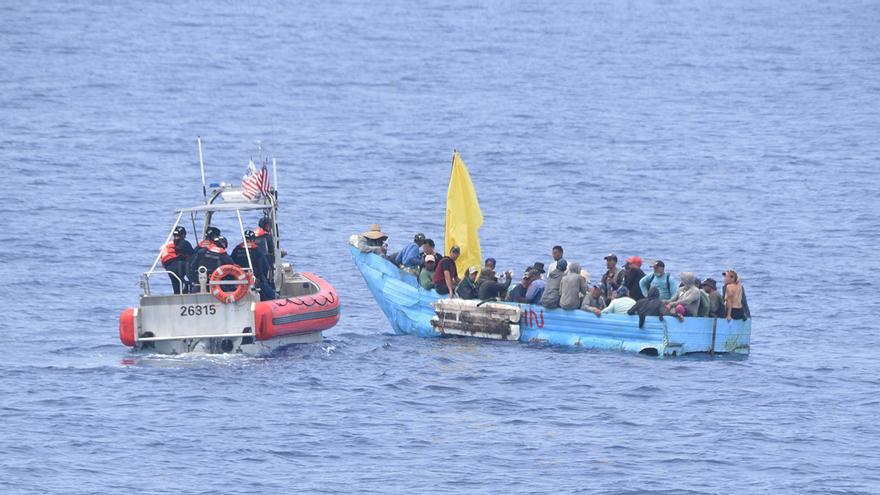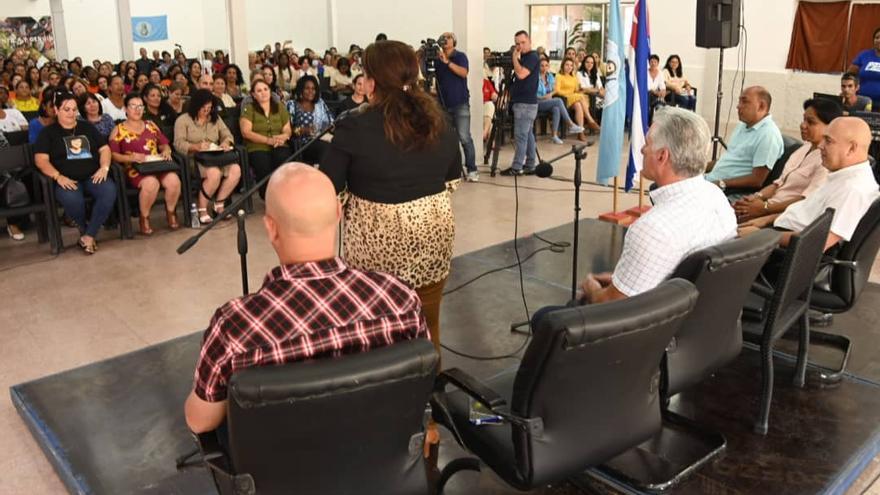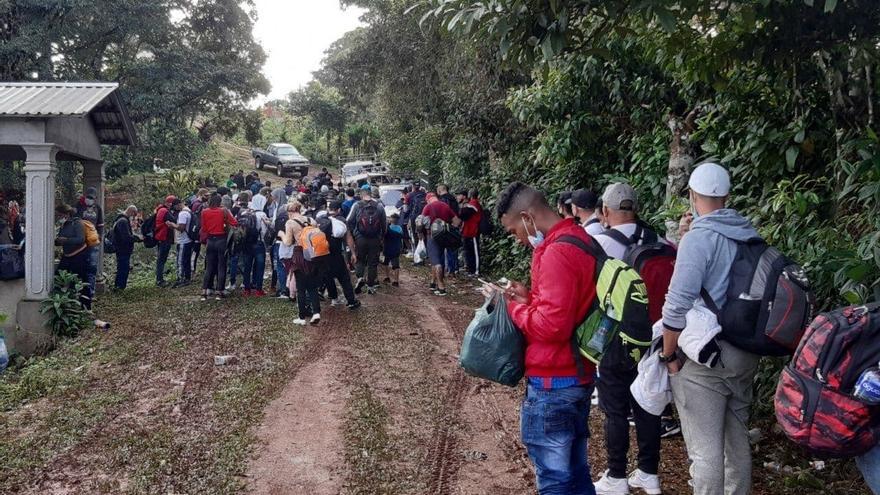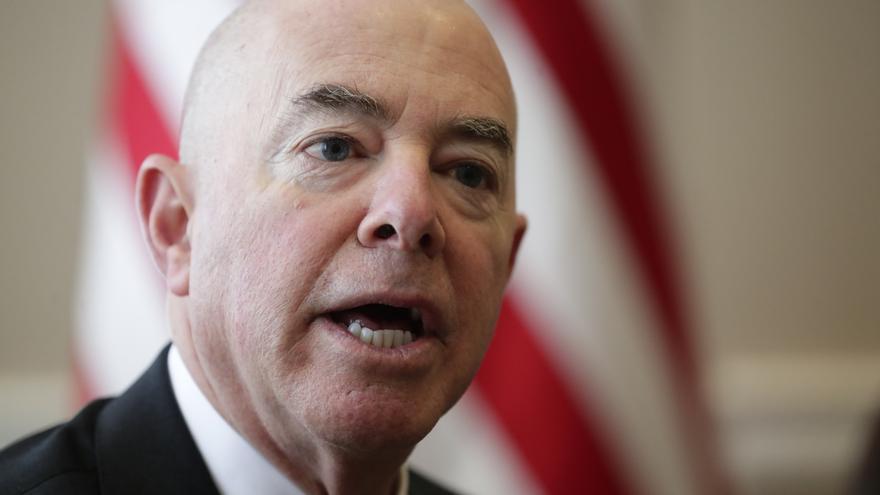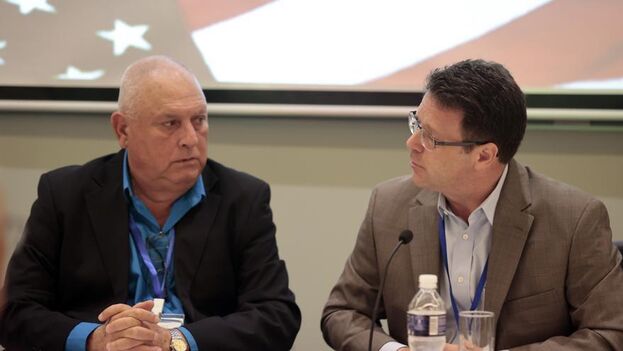Among those issues, Tablada referred to “incentives” that remain for irregular emigration, such as “the continuity of extreme, inhuman, siege measures, that directly influence the socioeconomic living conditions of the population of Cuba” and that make many Cubans seek to emigrate to the United States.
The Government of Cuba, Tablada added, blames the United States for “those high migratory flows and those extreme measures that have caused a direct threat to the well-being and livelihood of our population.”
“Regular migration will not be achieved, and this issue will not be resolved as long as there is that policy of asphyxiation against Cuba,” she said in statements reproduced by state media, although she acknowledged that last year there were “positive steps,” such as the resumption of the issuance of visas at the U.S. Embassy in Havana and the granting of the visas established in the migration agreements.
The Island’s delegation will also denounces “the admission of people who arrive irregularly in the United States,” which it considered “a stimulus for others to adopt that unsafe route,” and gave as an example the case of Rubén Martínez Machado, who stole a plane, fled to Miami and was granted political asylum, an “explicit violation of the migration agreements” and a “danger to the air safety of both countries,” she said. continue reading
Cuba will also reiterate its request for the re-establishment of non-immigrant visa programs so that the citizens of the Island can visit their relatives in the United States.
This round of talks will be marked by a sharp increase in the arrivals of Cubans to the U.S. coast, where the Coast Guard has intercepted some 5,000 Cuban rafters since last October.
Cuba’s grave economic crisis has intensified an unprecedented mass exodus, especially to the United States, where authorities detained more than 313,000 Cubans on the southern border with Mexico, a figure that represents about 3% of Cuba’s total population.
In this context, the Secretary of National Security of the United States, Alejandro Mayorkas, held a meeting in Panama with the foreign minister of that country and of Colombia and Mexico, to discuss migration through the dangerous Darién jungle. He insisted that migrants must use “legal means” or be “returned” to the other side of the border.
“There is a very important message to send in addition to the fact that we are building legal avenues so that people do not have to risk their lives in the Darién, and that is that we are enforcing our border laws,” the secretary remarked.
“It is so tragic to see people risk their lives, undertake the dangerous journey, suffer the trauma, put the savings of a lifetime in the hands of traffickers who only seek their own benefit, only to be returned,” said Mayorkas, who is of Cuban origin.
The Darién jungle is one of the most dangerous border crossings for migrants, who have to cross swollen rivers and risk the attacks of armed men who steal and rape. There is also a lack of drinking water, which is often contaminated by excrement and corpses.
Most migrants, when they have left the jungle and are exhausted and out of breath, say that they regret having taken that route, calling on their compatriots to choose another option, in vain.
This year alone, about 400,000 migrants are expected to cross the jungle, almost double the more than 248,000 who did so in 2022. In the first three months of 2023 alone, about 87,390 migrants crossed the Darién, seven times more than the same period in 2022.
“And those are the individuals, the human beings who survived to tell the trauma of the trip. We also think about the people who didn’t make it. That is exactly why we are generating legal avenues so that they can come to the United States in a safe and orderly way in search of a better life,” he explained.
Mayorkas highlighted as “the most powerful example of the success” of this legal path the creation of the program for nationals of Cuba, Haiti, Nicaragua and Venezuela, a measure that recently led to a 95% reduction in the arrests of individuals from these countries at the border.
“We have already received thousands and thousands of people in this way,” he said. The program can reach 30,000 humanitarian permits per month, “360,000 people per year.”
The U.S. official also warned that they are “expanding” the legal avenues. “We will be revealing in the coming weeks the additional avenues that people must take,” he announced.
The Secretary of Homeland Security also noted that migrants have at their disposal other ways to travel legally to U.S. territory, such as visas for seasonal workers, or for agricultural or non-agricultural workers for limited periods to “gain money lawfully and send remittances.”
In addition, next month the government of President Joe Biden will lift the controversial Title 42, a health measure imposed by the government of former President Donald Trump (2017-2021) that allows immediate expulsions of migrants at the border.
“We are concerned that there may be an increase in the level of migration” due to the lifting of that measure, Mayorkas acknowledged, recalling that the basis of the country’s immigration law, in Title 8, will remain fully in force.
In the meeting with EFE, Mayorkas was accompanied by Samantha Power, administrator of the U.S. Agency for International Development (USAID) and former U.S. ambassador to the United Nations. She highlighted the important role played by countries that were initially going to be only transit routes for migrants.
In Colombia, “more than two million Venezuelans” are settled, she said, and it is “a very important and laudable decision” that the Colombian authorities have offered them “a temporary protection status.”
“When that happened, USAID hurried to support the Colombian government to establish that system, the registration, the mechanism, but also to support the Venezuelans who entered to make sure that they did not overload the host communities,” said Power, who remarked that they are dedicating “more than 200 million dollars a year” to that mission and seek to increase it by 34 million.
The U.S. official insisted that it is the “responsibility” of the United States to support the countries south of the Darien — Colombia, Ecuador and Peru — “that are doing everything possible to absorb these migrant populations.”
For Mayorkas, the need to leave his country for political or economic reasons is not something foreign. A native of Cuba, he arrived with his parents and sister in the United States as “political refugees” when he was a child. “It was the second time, by the way, that my mother was a refugee,” having fled the Nazis in Europe.
“I understand very well the fragility of life, the vulnerability of people, the importance of humanitarian aid; and at the service of that fragility, at the service of that vulnerability, we generate legal avenues and urge people not to take such an costly risk. But it is also very important to remember that we are not alone in this. The migratory challenge that our region is experiencing is a challenge to which we must all respond together,” he said.
Translated by Regina Anavy
____________
COLLABORATE WITH OUR WORK: The 14ymedio team is committed to practicing serious journalism that reflects Cuba’s reality in all its depth. Thank you for joining us on this long journey. We invite you to continue supporting us by becoming a member of 14ymedio now. Together we can continue transforming journalism in Cuba.
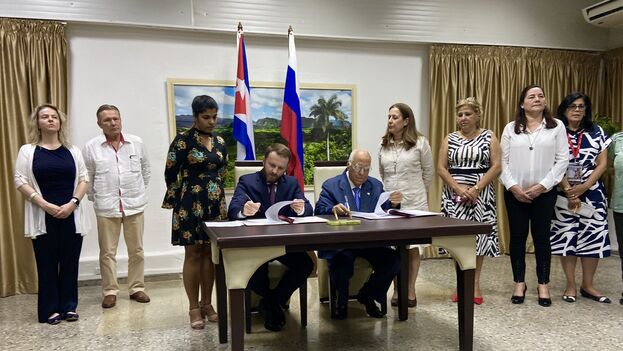
![]() EFE (via 14ymedio), Havana, 5 May 2023 — In Havana on Thursday, Cuba and Russia signed a memorandum of understanding for the bilateral investment initiative that includes the business projects agreed to between the two countries with the aim of expanding their relations.
EFE (via 14ymedio), Havana, 5 May 2023 — In Havana on Thursday, Cuba and Russia signed a memorandum of understanding for the bilateral investment initiative that includes the business projects agreed to between the two countries with the aim of expanding their relations.
